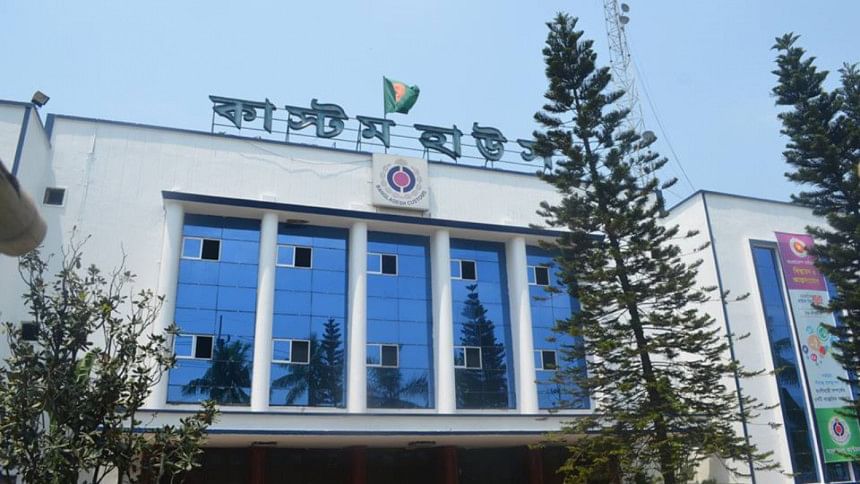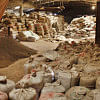Toxic animal feed still coming in

The Chattogram Customs House has recently seized 2,717 tonnes of imported fish and poultry feed containing hazardous ingredients like meat and bone meal (MBM), animal bones and by-products of pigs, which can cause cancer in humans.
The commerce ministry banned the import and sale of MBM on December 26, 2018, following a report of Bangladesh Food Safety Authority.
Such meal is banned in the US, the UK, Brazil and Canada but there is no bar on exporting it to other countries, said customs officials and importers.
In Asia, Bangladesh is the third country to have banned the import of MBM after India (2001) and Thailand (2017).
The feed, imported from Vietnam, Belgium, Thailand and Indonesia, were seized in July and August based on chemical test reports of the International Centre for Diarrhoeal Disease Research, Bangladesh (icddr,b) and Poultry Resource and Training Centre.
Earlier, customs authorities released several thousand tonnes of such feed as the previous chemical reports did not mention the presence of harmful ingredients.
The tests were conducted by Customs House Chemical Laboratory, Bangladesh Council of Scientific and Industrial Research (BCSIR), Chattogram, and Poultry Resource and Training Centre.
“In the past, a group of importers in league with Clearing and Forwarding (C&F) agents earlier took delivery of such hazardous and contraband fish and poultry feed through irregularities such as changing samples and forging lab reports.
Some customs officials helped them,” said Akbar Hossain, additional commissioner of Chattogram Customs House.
“We took some strong steps in collecting, sealing and transporting samples, and changed the laboratory when we learned about the forgery,” he said, adding that after taking the new measures, they found MBM and animal by-products in the poultry and fish feed.
In the last two and a half years, they sent samples of imported goods to several laboratories but did not get any hazardous and banned items in their reports, he said.
All imported goods have to go through physical or lab examinations before they are released from the Chattogram Port. According to officials, more than 4,500 types of products enter Bangladesh through this port, and about 1,000 of them go through lab tests.
Prof Dr Mukhles Uddin, a cancer specialist at Chattogram Medical College Hospital, said bacteria and virus can infest animal bones, which are left out in the open for a long time. They may cause cancer in humans if ingested.
“It will not leave any adverse impact immediately, but the consumers can get cancer after 10-15 years.”
According to the customs documents, the seized feed were imported by 12 firms -- Aisha Corporation, VNF Agro Ltd, Spectra Hexa Feeds Ltd, Promex Agro & Feed Products Ltd, Fishtech BD Ltd, Aquatech Agro (BD) Ltd, Advance Agrolek Bangladesh, Quality Feeds Ltd, RRP Agro Farm, Inter Agro BD Ltd, Magnify Agro Ltd, and MKA Hatchery.
Talking to The Daily Star, VNF Agro Managing Director AKM Khairul Islam Chowdhury said, “We were not aware of the existence of hazardous ingredients in the imported feed.”
Documents show that Aisha Corporation imported 601 tonnes of fish feed worth about Tk 1.7 crore from Vietnam in early July. The authorities gave clearance for the release of their goods based on a report of the BCSIR, and the importer took the delivery of around 322 tonnes.
However, the customs seized the rest as hazardous substances were found when they re-collected samples on information and sent those to the icddr,b and Poultry Resource and Training Centre for retests.
Both the laboratories found MBM, animal bones, and by-products of pigs in the fish feed.
Naznin Akhter, proprietor of Aisha Corporation, could not be contacted by phone for comments.
AGM Murshed, senior scientific officer at the BCSIR, said, “In no way can there be discrepancies in the reports of different laboratories unless the samples are changed or there is a major fault in the testing equipent.”
“Sometimes lab inspection officers may also give false reports after being influenced by someone. But the responsibility lies with the laboratory authorities,” he said, adding that BCSIR would look into the matter if a specific complaint was lodged by the customs authorities.
Chattogram Customs Commissioner Fakhrul Alam said they would write to the labs for an explanation of the process they applied for sample analysis.
In the last two months, more than 5,000 tonnes of fish feed were imported to Chattogram Port. But most importers have not received them yet, fearing that tests might detect hazardous elements in them, said officials.
“We are issuing letters to the importers to take their goods away from the port. If they don’t do so, the products will be destroyed as per rules,” the customs commissioner said.
Mahbub Kabir, member of Bangladesh Food Safety Authority, said MBM was banned because it is made from bones and waste of animals, including cow, pig and goat. It can carry virus, bacteria and other ingredients harmful for human health.
“We had collected samples of fish and poultry feed from the market. We had also collected chickens and fish, which consumed the products, to conduct the research,” he said.
Findings showed that apart from creating antibiotic resistance, consumption of these chickens and fish might cause cancer in human bodies, Kabir said.
He said the government banned MBM last year after the Food Safety Authority found such hazardous elements in samples collected from the market at different times.
Elias Hossain, manager (marketing) of Promek Agro & Feed Products Ltd, said the seized consignment was certified by exporter as fish feed. “The first BCSIR lab report also mentions that the consignment was safe.”
He alleged the customs authorities had been harassing them to protect the interest of local companies that produce and market such feed.
Monsur Alam, managing director of RRP Agro Farm, said, “Multiple lab reports say the products are MBM when in fact we imported fish feed.”
He said they would take some initiatives in this regard from their association -- Feed Industries Association of Bangladesh.
Comments from the other companies were not immediately available.
Moazzem Hossain, owner of Bengal Liner Agencies, which is in charge of releasing the consignment of Aisha Corporation, said they released more than half of the goods on the basis of lab reports in June.
“The customs authorities seized them based on false information and sent them to other labs for running a retest,” he said, claiming that the customs officials may have some ill-intents.
Asked about the allegation, Additional Commissioner of Customs Akbar Hossain said, “They have been importing banned and harmful products for long. Now that they have failed to do so, they are raising allegations against honest officials.”
He also alleged that these companies were threatening him and other customs officials by phone.
“The government or customs officials have nothing to gain if some goods are seized or get stuck in the port. We have acted out of concern for public health,” he added.

 For all latest news, follow The Daily Star's Google News channel.
For all latest news, follow The Daily Star's Google News channel. 




Comments